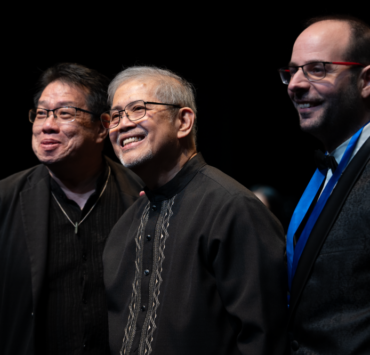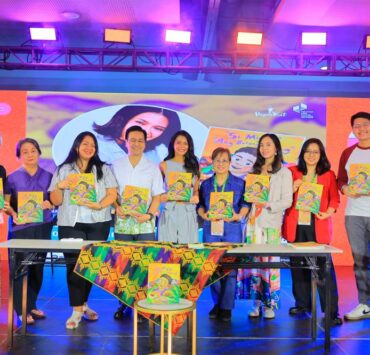‘When we play, we are united as one’
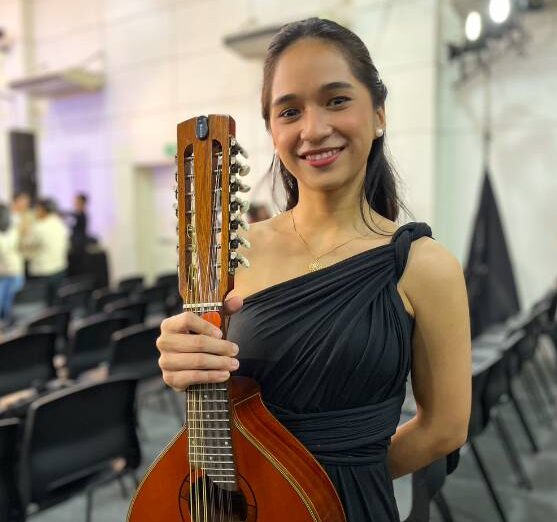
After taking their bows at yet another memorable concert — the final night of the Kuwerdas Filipinas Concert Series 2025 — the members of the country’s first professional rondalla group walked off the stage, plucked instruments in hand, huge smiles on their faces. There was an air of jubilation at the GT Toyota-Asian Center Auditorium at the University of the Philippines Diliman as they laughed and joked and posed for pictures with their beloved maestro Josefino Chino Toledo, visiting composers, and other guests.
It was a great show—they knew it, their conductor knew it, the audience knew it.
Curious about the people behind the great music, we spoke to some of them.
Nikki Zen A. Obmasca
Bandurria 2
The love for rondalla runs in Obmasca’s blood. Inspired and encouraged by her dad Isidro Obmasca, she started playing the bandurria at the age of 5 and never stopped.
She’s been part of the Lucban District Children’s Rondalla, the Lucban Pahiyas Rondalla, and Kuwerdas Filipinas, performing in the country and abroad, and also winning music competitions like the National Music Competitions for Young Artists.
She was a Bandurria major at the Philippine High School for the Arts, and Obmasca, now 22, is studying at the UP College of Music, with Musicology as her major.
What has sustained her passion for it? “I think playing with the ensemble, ‘yung pakikisama with other musicians, and the music we create together. It’s diverse, it’s not just folk, may pop, may contemporary, may new composers… very flexible. Kakaiba ‘yung timbre niya for an ensemble. It’s plucked string but it becomes bright.”
She’s happy to be part of Kuwerdas Filipinas. “We just recorded eight new pieces.”
Her tip for young people who want to get into rondalla? “Connect with the rondalla people, the rondalla industry. Maliit lang namin kami. Develop your skill, develop your techniques and talent para eventually lahat tayo makatugtog together.”
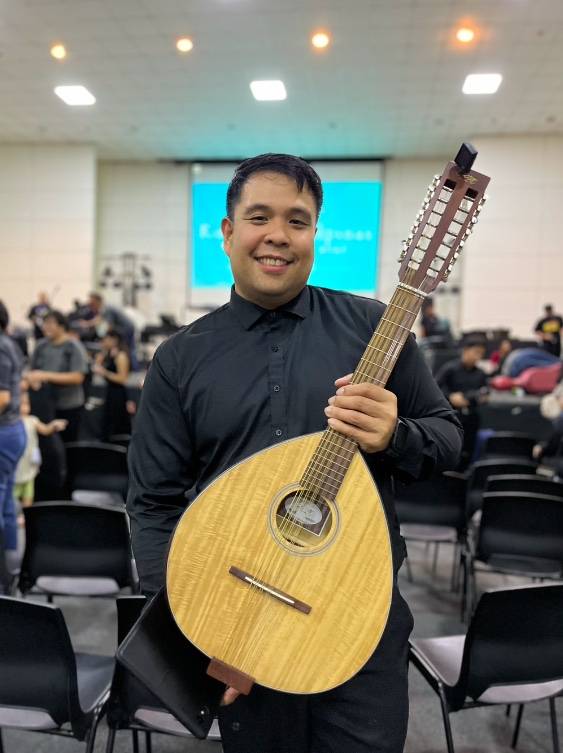
Jezreel K. Lastra
Laud
Ask Lastra where he’s from and he’ll tell you with a laugh: “I’m from the slums of Tondo, Manila.”
For Lastra, rondalla is a family affair. “My siblings, my older sisters, lahat sila tumutugtog.”
Like Obmasca, he started when he was just five years old. “Na-attach talaga ako since bata. Some classmates used to say, “Ang baduy, ang baduy,‘ but no, I really stuck with it.”
He remembers auditioning for the first Strings of Unity International Rondalla Festival that was held in Naga. He was still in college then, studying at Philippine Normal University. Today, he is Kuwerdas Filipinas’ laud section leader.
Lastra has seen rondalla develop over the years. “Nakita ko na kaya pala ng rondalla ang ginagawa ng violin, ng classical music. Doon ako na-amaze—na kung kaya ng orchestra, kaya din ng Philippine music instruments.”
He embraces the challenge contemporary pieces give them. “We started with simple pieces, now when you see the contemporary context of our pieces, we have to deal with it… Kulang na lang ipukpok namin ‘yung ulo namin sa instrumento,” he said, laughing. “Nawalan talaga ng limits. Kulang na lang talaga maging circus rondalla kami.”
He loves being in a group with musicians from all over the country—from Dipolog to Dumaguete—and they love being led by Toledo. When we said that we could feel the musicians’ love for their maestro, Lastra said, “Yes, sobra.”
He also expressed appreciation for their concertmaster Raylan Dominic Julayco, who did the arrangement for their encore featuring Bini’s “Pantropiko.” “He did a great job. Alam niya anong magpapakiliti sa inyo, sobrang husay niya.”
Preserving Philippine culture is important to Lastra. “I was also part of Bayanihan Dance Company, we travel abroad, and their respect for Philippine music is really something else… Philippine culture is dying and it’s changing. That’s why kailangan natin sumabay.”
It is his hope that young people would embrace rondalla like they do. “I want to inspire them, of course, na mahalin natin ang sariling atin. Embrace the culture, we have to preserve it. Walang ibang magmamahal sa musikang Pilipino kundi tayo lang. ‘Pag minahal natin, mas mamahalin pa ‘yan ng foreigners.”
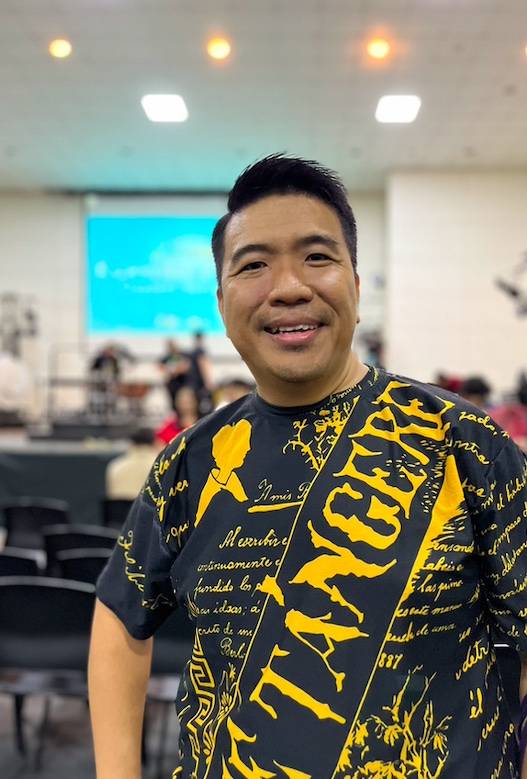
Ben B. Brillantes
Double bass
Brillantes, from the Los Trobadores Rondalla of Cainta, Rizal, first discovered rondalla in fourth grade as a special program in school.
What had been a school requirement has turned into a lifelong passion for him. Brillantes said it’s his “love for music and continuity of culture” that has kept him going.
“Yung rondalla namin in Cainta, it’s a community rondalla. The old mayors revived it. Cainta’s cultural heritage is rooted in rondalla.”
He enjoys working with different musicians from all over the country. “It’s very fulfilling because we come from different cultures, iba-ibang pedagogy, but when we play, we are united as one.”
Brillantes added, “When I started, it was very simple—folk dances, folk songs, I never imagined that it would become like this, that we could play like this in a symphonic rondalla… Our versatility is tested by the pieces. It’s not just classical or contemporary, we go through everything.”
What does being part of Kuwerdas Filipinas mean to him? “It’s a privilege to be part of it, and to be one of the people who have been there from the very beginning, in 2004.
“It’s a family gathering actually ‘pag nagsasama kami dito… Mahal na mahal ko yang mga ‘yan, biro mo, 20 years.”
In fact, that night, at the last concert of the series, he was a little sad. “Medyo malungkot na maghihiwalay-hiwalay kami... but at the same time, it’s an achievement.”
He found the way the audience reacted to their performance as “overwhelming talaga.”
With Kuwerdas Filipinas, they’ve proven that rondalla could be professionalized—and that’s something he hopes young people would realize. “That’s the fulfillment, that’s our mission vision, for the next generations to continue what we started.”














